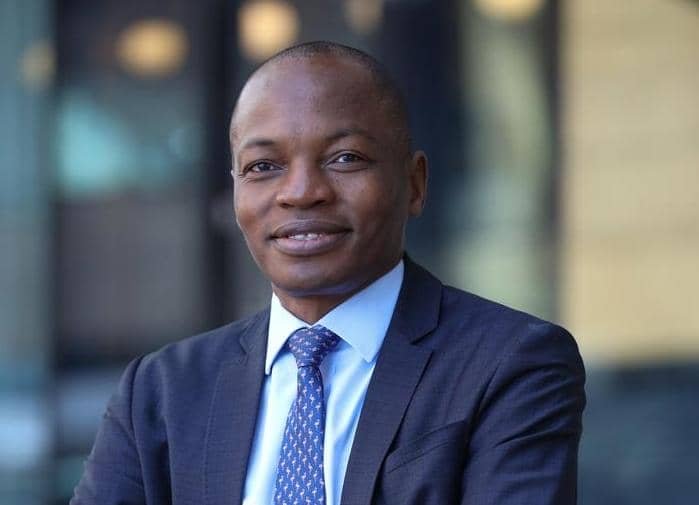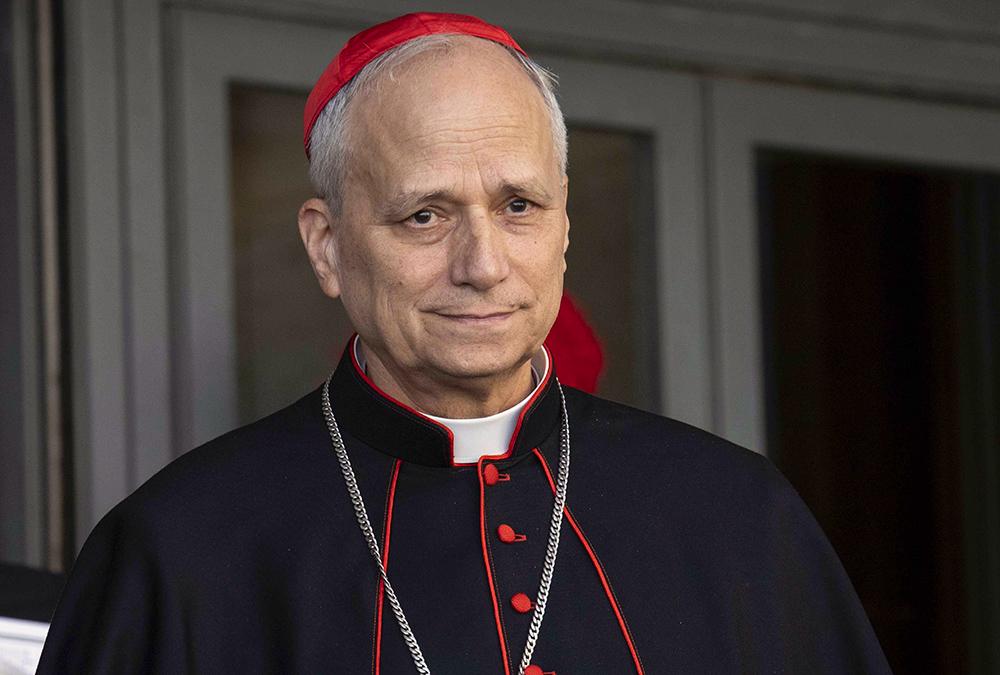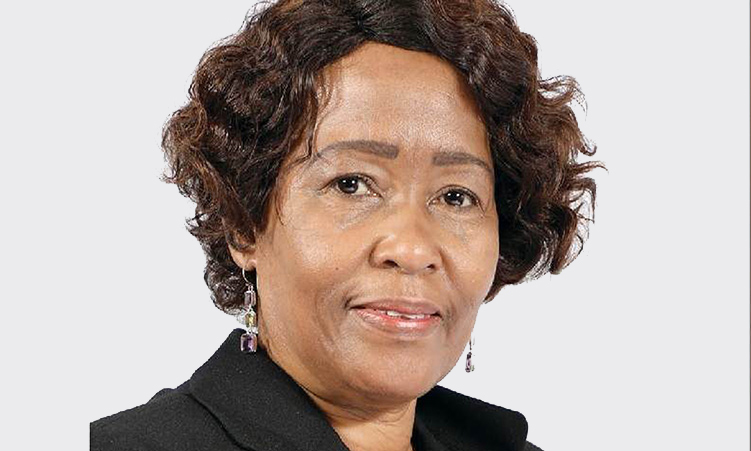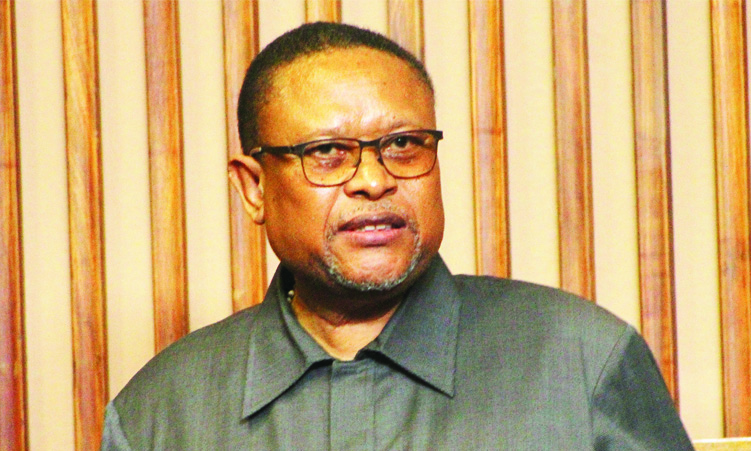NAMIBIA Defence Force officers are receiving training as international peacekeepers in partnership with the USA, which has had an African Contingency Operations Training and Assistance (ACOTA) programme in place for several years.
The NDF’s Chief of Staff for Operations, Brigadier General Denga Ndaitwah, opened the workshop on Monday. The outcome of the week-long training under Lieutenant Colonel Michael Kelly will be a training action plan for the NDF to run over the next two years to guide and direct future training exercises.Countries in southern Africa plan to establish a regional standby brigade next year, which will at a later stage form part of the African Union’s standby force.”This conference is intended to frame future training plans by assessing Namibia’s current (military) training philosophy and resources,” said US Charge d’Affaires Eric Benjaminson, “and designing a path to a future training vision that supports Namibian troop contributions to multi-national peacekeeping operations in Africa.”Brigadier Ndaitwah said the NDF had, over the past 16 years, been involved in several peacekeeping operations in Angola, Cambodia, Eritrea, Kosovo, Liberia and Sudan.”It is our conviction that peacekeeping helps establish regional and international security and stability.With these commitments we are required to modernise our (Defence) Force to become more efficient, more cost effective and to …increase our readiness levels,” Ndaitwah added.The US military has trained several NDF officers in the US and supported the demining of areas near Ruacana since Independence.Since the start of its 2006 fiscal year, American funds for peacekeeping training in Africa have been channelled primarily through its new Global Peace Operations Initiative (GPOI), incorporating the African Contingency Operations Training Assistance (ACOTA) programme.African states will receive a huge chunk of the U$80 million allocated to the US Defence Department for GPOI in 2005 and of the U$100,4 million requested for 2006.For 2007, an amount of $102,6 million was requested.Under ACOTA, the US military plans to train and equip new battalions and special units in partner countries like Senegal, Ghana, Malawi, Botswana, Mozambique, South Africa, Namibia, Zambia, Angola and Nigeria.Apart from peacekeeping training, ACOTA includes offensive training, particularly for regular infantry units and small units modelled on special forces, as well as training for hostile environments.The African forces now have standardised attack equipment like assault rifles, machine guns and mortars.But according to Pierre Abramovici, who writes for the monthly publication Le Monde Diplomatique in France, Washington’s military support for Africa is not just selfless development aid.”The United States is turning its diplomatic and military attention to Africa after the attacks on New York and Washington on September 11 2001,” he wrote recently.Since the attacks, the US had boosted military investment in Africa as the war on terrorism gave it the necessary pretext, Abramovici argued, quoting US President George W Bush during his African tour in July 2003 as saying that “we will not allow terrorists to threaten African peoples, or to use Africa as a base to threaten the world”.Abramovici wrote that the US government was interested in securing oil and natural gas supplies in Africa, as well as the continent’s metal and industrial diamond resources.”It (US government) is quietly establishing military training and equipment links with a number of (African) countries to secure future supply lines,” he wrote in Le Monde Diplomatique.The outcome of the week-long training under Lieutenant Colonel Michael Kelly will be a training action plan for the NDF to run over the next two years to guide and direct future training exercises.Countries in southern Africa plan to establish a regional standby brigade next year, which will at a later stage form part of the African Union’s standby force. “This conference is intended to frame future training plans by assessing Namibia’s current (military) training philosophy and resources,” said US Charge d’Affaires Eric Benjaminson, “and designing a path to a future training vision that supports Namibian troop contributions to multi-national peacekeeping operations in Africa.”Brigadier Ndaitwah said the NDF had, over the past 16 years, been involved in several peacekeeping operations in Angola, Cambodia, Eritrea, Kosovo, Liberia and Sudan.”It is our conviction that peacekeeping helps establish regional and international security and stability.With these commitments we are required to modernise our (Defence) Force to become more efficient, more cost effective and to …increase our readiness levels,” Ndaitwah added.The US military has trained several NDF officers in the US and supported the demining of areas near Ruacana since Independence.Since the start of its 2006 fiscal year, American funds for peacekeeping training in Africa have been channelled primarily through its new Global Peace Operations Initiative (GPOI), incorporating the African Contingency Operations Training Assistance (ACOTA) programme.African states will receive a huge chunk of the U$80 million allocated to the US Defence Department for GPOI in 2005 and of the U$100,4 million requested for 2006.For 2007, an amount of $102,6 million was requested.Under ACOTA, the US military plans to train and equip new battalions and special units in partner countries like Senegal, Ghana, Malawi, Botswana, Mozambique, South Africa, Namibia, Zambia, Angola and Nigeria.Apart from peacekeeping training, ACOTA includes offensive training, particularly for regular infantry units and small units modelled on special forces, as well as training for hostile environments.The African forces now have standardised attack equipment like assault rifles, machine guns and mortars.But according to Pierre Abramovici, who writes for the monthly publication Le Monde Diplomatique in France, Washington’s military support for Africa is not just selfless development aid.”The United States is turning its diplomatic and military attention to Africa after the attacks on New York and Washington on September 11 2001,” he wrote recently.Since the attacks, the US had boosted military investment in Africa as the war on terrorism gave it the necessary pretext, Abramovici argued, quoting US President George W Bush during his African tour in July 2003 as saying that “we will not allow terrorists to threaten African peoples, or to use Africa as a base to threaten the world”.Abramovici wrote that the US government was interested in securing oil and natural gas supplies in Africa, as well as the continent’s metal and industrial diamond resources.”It (US government) is quietly establishing military training and equipment links with a number of (African) countries to secure future supply lines,” he wrote in Le Monde Diplomatique.
Stay informed with The Namibian – your source for credible journalism. Get in-depth reporting and opinions for
only N$85 a month. Invest in journalism, invest in democracy –
Subscribe Now!










